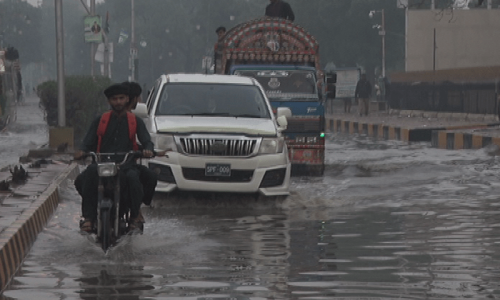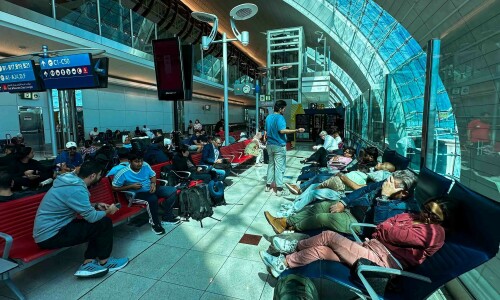Britain warned on Monday that conflict might break out “by accident” amid rising tensions between the United States and Iran, as US Secretary of State Mike Pompeo held talks with European Union powers backing the nuclear deal with the Islamic republic.
The warning came as Saudi Arabia said that two of its oil tankers were sabotaged off the coast of the United Arab Emirates in attacks Sunday that caused “significant damage” to the vessels, one of them as it was heading to pick up Saudi oil to take to the US.
Washington has warned ships that “Iran or its proxies” could be targeting maritime traffic in the Persian Gulf region and said it was deploying an aircraft carrier and B-52 bombers to the Persian Gulf to counter alleged threats from Tehran.
“We are very worried about the risk of a conflict happening by accident, with an escalation that is unintended really on either side but ends with some kind of conflict,” British Foreign Secretary Jeremy Hunt told reporters in Brussels.
“What we need is a period of calm to make sure that everyone understands what the other side is thinking,” Hunt said, adding that would share those concerns Monday with European partners and Pompeo.
The US pulled out of the 2015 nuclear accord a year ago, saying it does nothing to stop Iran developing missiles or destabilising the Middle East. The Europeans insist the agreement was never meant to address those issues but has been effective in curbing Iran's nuclear ambitions.
Tensions mounted last week, when Iranian President Hassan Rouhani said that signatories to the deal now have 60 days to come up with a plan to shield his country from the sanctions imposed by US President Donald Trump.
French Foreign Minister Jean-Yves Le Drian described the remarks suggesting that Iran might renege on the agreement as "very worrying", given that the EU is still respecting the deal and trying to bolster the country's economy.
Hunt warned of the importance of ensuring that Iran doesn't resume banned atomic activities, saying that “if Iran becomes a nuclear power, its neighbours are likely to want to become nuclear powers. This is already the most unstable region in the world. This would be a massive step in the wrong direction."
The meeting between Hunt, his counterparts from France and Germany, and EU foreign policy chief Federica Mogherini comes as the Europeans struggle to keep financial supply lines open to Iran to offset the impact of US sanctions on the Islamic republic's shattered economy.
“We in Europe agree that this treaty is necessary for our security,” German Foreign Minister Heiko Maas said. “Nobody wants Iran to get possession of an atomic bomb, and that's been achieved so far.”
As the US sanctions bite, domestic pressure is increasing on Rouhani to demonstrate that Iran can still benefit from an agreement based on providing it with economic opportunities in exchange for limiting nuclear development.
Maas said the Europeans "are working on the assumption that Iran won't withdraw step by step from this treaty, but rather meet all of its commitments". Even so, the EU cannot keep Iran's economy afloat alone.
The Europeans have set up a complicated barter-type system to skirt direct financial transactions with Iran and so evade possible US sanctions. The workaround, dubbed INSTEX, is not yet operational as Iran has not completed its part of the scheme.
They have also introduced a “blocking statute” protecting European companies from the effects of US sanctions, but many international corporations do more business in the United States than in Iran and have already severed ties there rather than risk running afoul of Washington.
“We have already initiated concrete steps in recent months, especially as concerns the payment channel and INSTEX. Now this instrument needs to be further operationalised and used in order to continue implementing” the nuclear agreement, Maas said.
















































